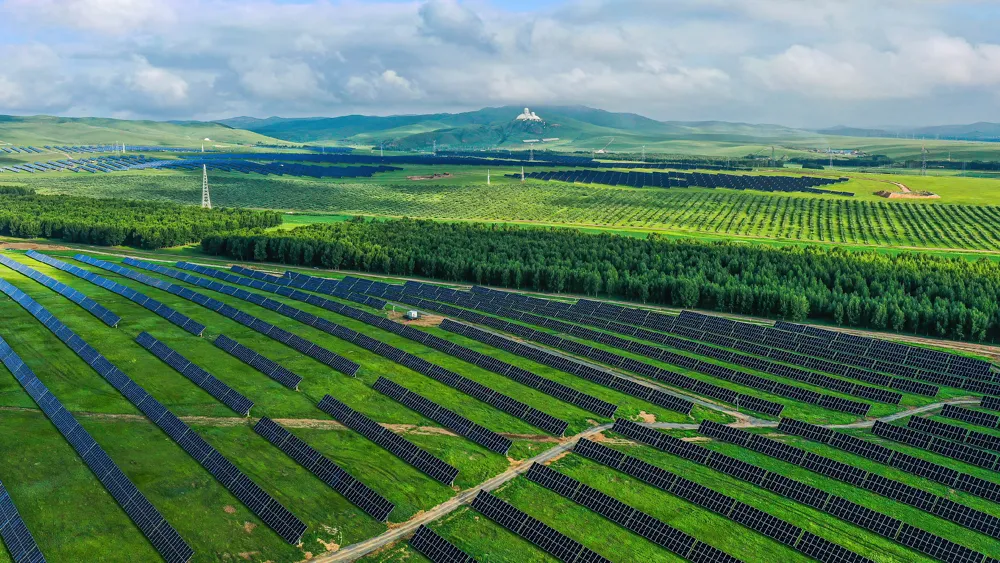China Unveils Green Transition Guidelines Amid Global Energy Crisis

In a significant step toward a sustainable future, China has unveiled guidelines aimed at expediting its green transition across various sectors of economic and social development. This initiative aligns with global efforts to combat climate change, underscored by BP's Energy Outlook 2024, which highlights the urgent necessity for a shift from fossil fuels to low-carbon energy sources.
Released by the National Development and Reform Commission (NDRC), these comprehensive guidelines set a roadmap for China, targeting substantial progress in its green transition by 2030. By 2035, the vision is to establish a green, low-carbon, and circular economy, marking a crucial step toward realizing the concept of "Beautiful China".
These guidelines come at a critical juncture when global energy consumption patterns are under scrutiny. BP's report indicates an increase in investments toward low-carbon energy, yet global carbon emissions continue to rise, prompting further investigation into the effectiveness of current strategies.
China's green transition strategy encompasses a range of initiatives aimed at enhancing sustainability while reducing the national carbon footprint. Key objectives include an uptick in renewable energy usage, improved energy efficiency, a reduction in greenhouse gas emissions, and the advancement of environmentally friendly technologies. China's ambition is to reach peak carbon emissions before 2030 and achieve carbon neutrality by 2060.
The newly issued guidelines articulate a multifaceted approach for the green transition, focusing on the optimization of territorial space development, facilitating green transitions within the industrial and energy sectors, and promoting sustainability in transportation and urban-rural development. A critical goal is to increase non-fossil energy use to 25 percent of total consumption by 2030.
An illustrative example of these efforts is the recent completion of a solar photovoltaic project at Nanjing's Maqun Bus Depot, which features 1,770 rooftop panels. This initiative, operated by Nanjing Public Transport, generates renewable electricity for depot operations with any surplus being fed back into the grid, showcasing a commitment to integrating public transport with renewable energy for sustainable urban development.
Liu Qiong, director of the National Energy Conservation Center at the NDRC, emphasizes the comprehensive nature of these guidelines. He pointed out that embedding sustainability throughout every development aspect and promoting this transition across various sectors and regions is essential for enhancing China's development potential and building a competitive modern economy.
The guidelines also advocate for a transition in consumption patterns, urging citizens to adopt sustainable and healthy lifestyles. Efforts will be made to increase government procurement of environmentally friendly products and encourage trade-in programs for new energy vehicles and green appliances, particularly in rural communities.
However, Liu noted that the green transformation in the consumption sector must be carefully coordinated at multiple stages, from production to usage and disposal. This will require an array of institutional and policy reforms to invigorate green consumption initiatives.
China's green transition occurs amidst a complex global energy context. BP's Energy Outlook 2024 indicates that the world is currently experiencing an "energy addition" phase, characterized by a simultaneous increase in the consumption of both fossil fuels and low-carbon energy sources, which poses significant challenges ahead.
As the global community confronts the intricate challenges associated with energy transitions, China's forward-looking actions could greatly impact the patterns of global energy consumption in the decades to come.
Read These Next

Space for All A Journey Beyond Earth Exploration
"Space for All: A Journey Beyond Earth" highlights international collaboration in space, focusing on lunar missions and asteroid defense.

China's First Domestically Made Large Cruise Ship Sets Sail
China's first large cruise ship, Adora Magic City, set sail from Shanghai on Monday, marking a milestone for local shipbuilding.

Wildfires Limit Global Forest Recovery Capabilities Study Warns
Study shows global forest recovery post-wildfires is declining, stressing need for international efforts to improve resilience.
